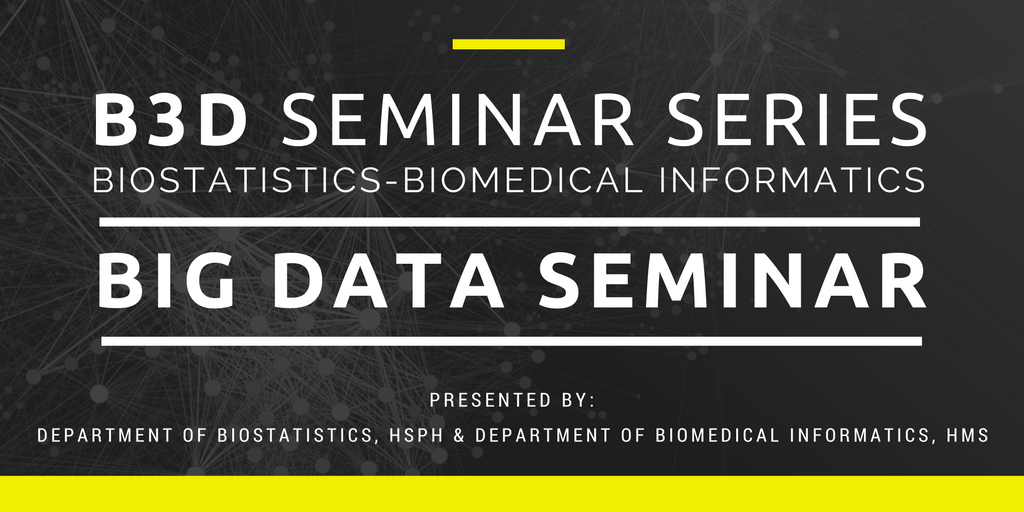Monday, September 18, 2017
1:15-2:15 PM
Minot Room, 5th Floor
Countway Library, HMS
B3D Website
Jennifer Listgarten
Senior Researcher
Microsoft Research New England
From Genetics to CRISPR Gene Editing with Machine Learning
Molecular biology, healthcare and medicine have been slowly morphing into large-scale, data driven sciences dependent on machine learning and applied statistics. In this talk I will start by explaining some of the modelling challenges in finding the genetic underpinnings of disease, which is important for screening, treatment, drug development, and basic biological insight. Genome and epigenome-wide associations, wherein individual or sets of (epi)genetic markers are systematically scanned for association with disease are one window into disease processes. Naively, these associations can be found by use of a simple statistical test. However, a wide variety of structure and confounders lie hidden in the data, leading to both spurious and missed associations if not properly addressed. Much of this talk will focus on how to model these types of data. Once we uncover genetic causes, genome editing—which is about deleting or changing parts of the genetic code—will one day let us fix the genome in a bespoke manner. Editing will also help us to understand mechanisms of disease, enable precision medicine and drug development, to name just a few more important applications. I will close by discussing how we developed machine learning approaches to enable more effective CRISPR gene editing.




